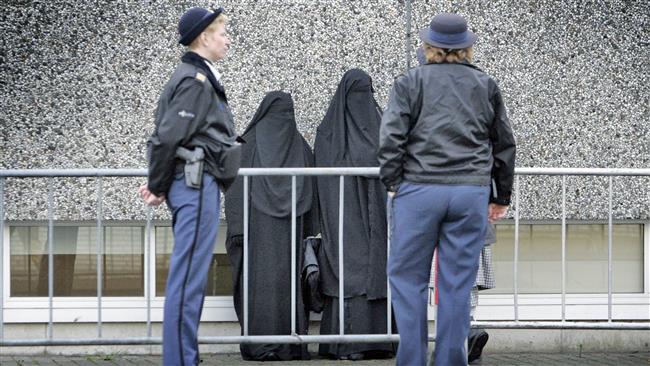
RNA - The Dutch government announced the measure in a statement released on Friday after the cabinet meeting, in which state officials threw their weight behind the bill proposed by Interior Minister Ronald Plasterk.
"Face-covering clothing will, in future, not be accepted in education and healthcare institutions, government buildings and on public transport," the statement read.
Plasterk claimed that the restriction would not hamper religious freedom in the Netherlands, arguing that it would only apply "in specific situations where it is essential for people to be seen" or for security reasons.
Under the ban, which has to be approved by both houses of parliament to pass, women wearing the full-body cloak in public places and buildings will be fined up to 405 euros (around 450 dollars).
The new bill replaces a previous one drawn up in 2012, which banned the burqa even on the streets in the Netherlands.
Following Friday's approval of the latest measure, the Dutch government said that it "sees no reason for a general ban that would apply to all public places."
Between 100 and 500 women wear the burqa in the Netherlands, where Muslims make up about 5 percent of the European country’s 16.8 million population, according to the state broadcaster NOS.
France in 2011 became the first country in Europe to enact a law forbidding face-covering veils in public, fining those wearing such covers up to 150 euros (205 dollars).
Similar restrictions have been approved in Belgium and some parts of Switzerland, with other European countries considering comparable bans.
Under the Islamic dress code, women are not obliged to cover their faces in public.
R111/108/C/